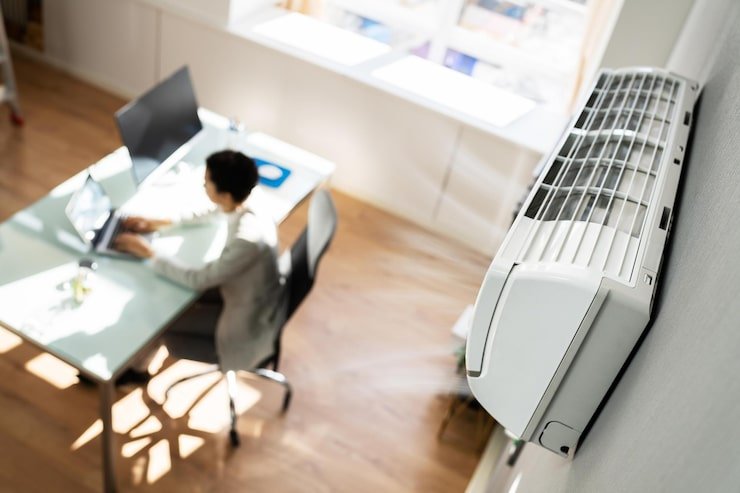What to Expect During a Home Inspection: A Step-by-Step Guide
- admin323029
- Blog

Whether you’re buying a new home or preparing to sell one, Home Inspections play a crucial role in making informed decisions about your property. Home inspections provide a comprehensive evaluation of the condition of the house, offering both buyers and sellers peace of mind. But what exactly happens during a home inspection? In this step-by-step guide, we’ll walk you through what to expect, making the process smoother and less stressful for homeowners in Massachusetts and New Hampshire.
At Elite Home & Mold Inspections, we provide thorough home inspection services to ensure your property is in top shape. We’re dedicated to offering detailed, easy-to-understand reports so you can make informed decisions. Here’s everything you need to know about the inspection process.
1. Scheduling Your Home Inspection
The first step in any home inspection is scheduling the appointment. Once you’ve decided to move forward with a home purchase or sell your property, reach out to a trusted inspection service like Elite Home & Mold Inspections. We offer flexible scheduling to accommodate your needs.
When you book your appointment, you will typically need to provide some basic information about the property, including its size, age, and location in Massachusetts or New Hampshire. This helps the inspector prepare for the inspection and allows them to allocate the appropriate amount of time for the visit.
Once scheduled, you will receive confirmation of the appointment. It’s important to note that Home Inspections usually take a few hours to complete, depending on the size of the property and any additional services (like mold or air quality testing) you request.
2. Arrival and Initial Walkthrough
On the day of the inspection, your inspector will arrive at the property and introduce themselves. They will begin by walking through the property’s exterior and interior, getting an overview of the home’s condition.
During this walkthrough, the inspector will look for any obvious issues like cracks in the foundation, damaged roofing, or faulty windows. While this initial assessment is not as in-depth as the actual inspection, it helps the inspector understand the property’s overall state and allows them to begin formulating a plan for the inspection.
You’ll have the opportunity to ask questions and express any specific concerns you may have about the home. This is a good time to share any information you know about past repairs or potential problem areas.
3. Detailed Inspection of the Exterior
Next, the inspector will conduct a thorough examination of the home’s exterior. This part of the inspection is crucial for identifying any structural or safety concerns that may affect the property’s value or livability.
Some key areas inspected during the exterior check include:
- Roof: The inspector will check for signs of damage or wear, such as missing shingles, leaks, or other visible issues.
- Foundation: Any cracks, settling, or shifting of the foundation will be noted.
- Siding and Windows: The inspector will assess the condition of the siding, trim, and windows for rot, mold, or any other damage.
- Driveways and Walkways: Cracks, uneven surfaces, and other issues that could present a tripping hazard will be noted.
If you’re purchasing a home in Massachusetts or New Hampshire, it’s important to check for weather-related damage, especially to roofs and foundations. These areas are more susceptible to damage from winter storms, snow, and freezing temperatures.
4. Interior Inspection: Plumbing, Electrical, and HVAC Systems
After the exterior inspection, the inspector will move inside the home, where they will examine several important systems, including plumbing, electrical, and HVAC (heating, ventilation, and air conditioning).
Here’s a breakdown of what to expect during the interior inspection:
- Plumbing: The inspector will look for leaks, signs of corrosion, water pressure issues, and the condition of pipes, faucets, and drains.
- Electrical: The inspector will test the home’s electrical system, checking for outdated wiring, exposed wires, and the overall safety of outlets and electrical panels.
- HVAC: The inspector will assess the functionality of the home’s heating and cooling systems, ensuring they are in good working condition. They’ll also check for proper ventilation.
This part of the inspection is particularly important because plumbing, electrical, and HVAC systems can be costly to repair or replace if problems are found later. Home Inspections give you the information you need to address any issues before moving forward with a purchase.
5. Checking for Mold, Moisture, and Air Quality
For homes in Massachusetts or New Hampshire, mold and moisture issues are common due to the humid climate. Your home inspector may offer mold testing or air quality testing services, which can help identify potential issues early. If you notice musty odors, visible mold, or damp areas in your home, these tests can confirm whether mold is present and if the air quality is compromised.
Mold inspections and air quality assessments are essential for creating a healthy home environment. High levels of mold can cause health issues, especially in individuals with respiratory problems, asthma, or allergies. If mold is detected, it’s important to address the issue promptly.
At Elite Home & Mold Inspections, we provide specialized services to test for mold and assess air quality, ensuring your home is safe for all inhabitants.
6. Final Report and Recommendations
Once the inspection is complete, your inspector will compile a detailed report outlining their findings. This report will typically include:
- A list of issues discovered during the inspection: The inspector will provide a thorough description of any problems found, whether they’re minor cosmetic concerns or major structural issues.
- Photos of the issues: The report may include photographs to give you a better understanding of the problems.
- Recommendations for repairs or further evaluation: If significant problems are discovered, the inspector will recommend next steps, whether it’s repairing the issue or consulting a specialist for further assessment.
The report will be provided to you within a few days of the inspection. At Elite Home & Mold Inspections, we ensure that our reports are clear and easy to understand, so you can make informed decisions based on the findings.
7. Negotiating Repairs or Price Adjustments
If the home inspection reveals significant issues, buyers may be able to negotiate repairs or price adjustments with the seller. Your real estate agent can help you with this process, using the inspection report as leverage in discussions.
In some cases, the seller may agree to fix the problems before the sale or offer a discount on the home’s purchase price to cover the cost of repairs.
Conclusion: A Stress-Free Home Inspection with Elite Home & Mold Inspections
Understanding what to expect during a Home Inspection can make the process less intimidating. By following this step-by-step guide, you can feel more prepared and confident as you move forward with purchasing or selling a property. Whether you’re looking for a routine inspection or need specialized services like mold testing or air quality testing, Elite Home & Mold Inspections is here to help.
Don’t let unknown issues affect your investment. Contact Elite Home & Mold Inspections today to schedule your home inspection and ensure the property you’re buying or selling is in top condition.
FAQs
1. What does a standard Home Inspection include?
A typical Home Inspection includes an assessment of the home’s exterior, interior, plumbing, electrical systems, and HVAC. Additional services like mold and air quality testing can be added.
2. How long does a Home Inspection take?
Most Home Inspections take about 2-4 hours, depending on the size of the home and whether additional services are requested.
3. Should I be present during the Home Inspection?
It’s highly recommended to be present during the inspection. This allows you to ask questions and get a clear understanding of any issues found.
4. What should I do if mold is found during the Home Inspection?
If mold is detected, it’s important to take immediate action to address the issue. Elite Home & Mold Inspections offers mold remediation recommendations.
5. Can I negotiate the price of a home based on the Home Inspection report?
Yes, if the inspection reveals significant issues, you may be able to negotiate repairs or a price reduction with the seller based on the findings.
Are you worried about the cleanliness of your space?
Let us help you! Cleaning services are our specialty, and we offer a complete range of cleaning and maintenance services. Get a free estimate!




